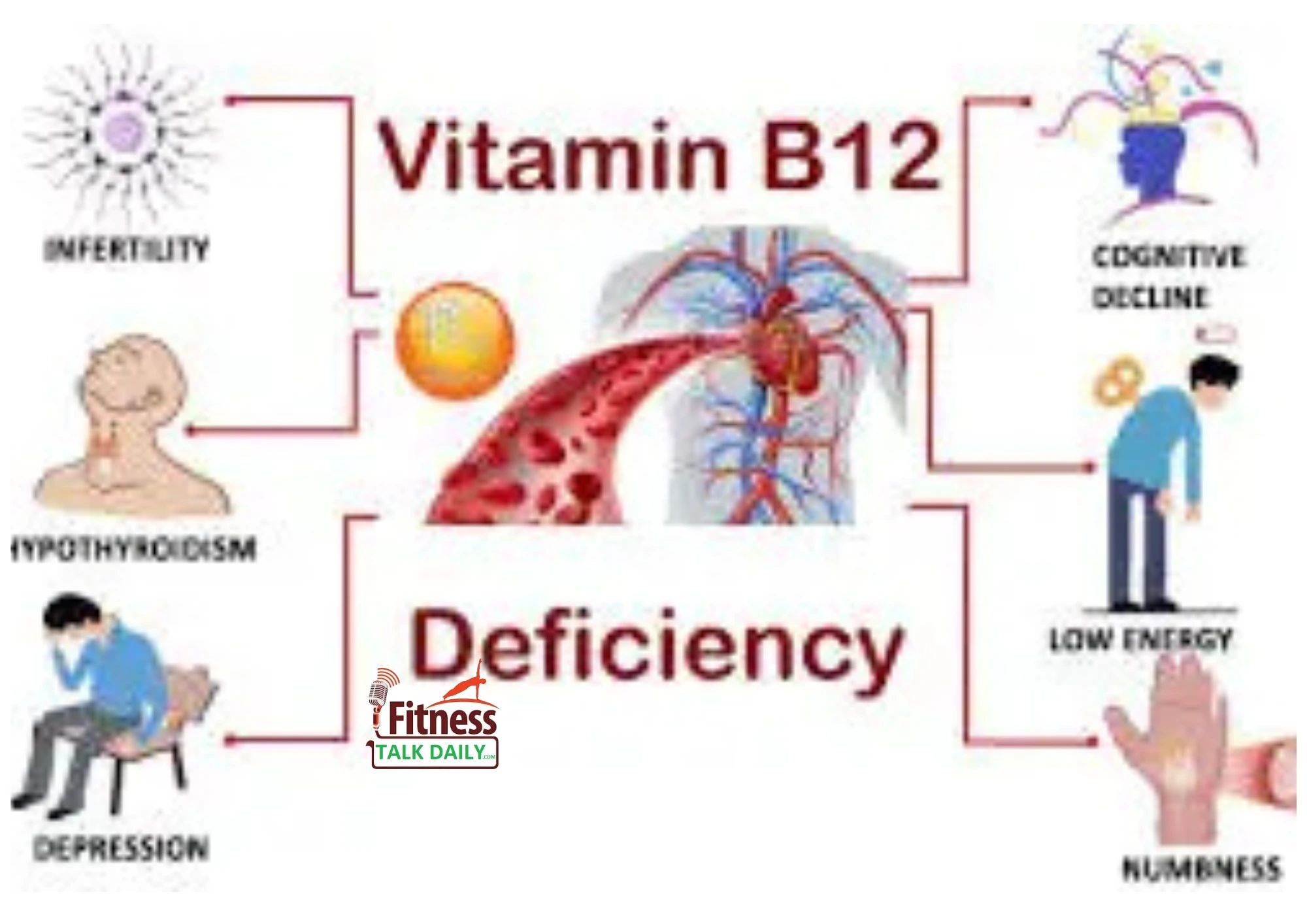Vitamin B12 deficiency is a common health condition that can lead to various problems, including fatigue, weakness, anemia, and cognitive issues. B12 plays a crucial role in red blood cell formation, nerve function, and DNA synthesis. If your diet lacks sufficient Vitamin B12, it can affect your overall health. But don’t worry! You can easily treat this deficiency by incorporating Vitamin B12 rich foods into your meals.
In this article, we will discuss Vitamin B12 deficiency, its symptoms, and highlight the top 4 foods that can help you complete your Vitamin B12 requirements.
Table of Contents
- What is Vitamin B12 Deficiency?
- Symptoms of Vitamin B12 Deficiency
- Top 4 Foods to Complete Vitamin B12 Deficiency
-
- Eggs
-
- Dairy Products
-
- Fortified Cereals
-
- Fish and Shellfish
-
- How to Incorporate Vitamin B12 Rich Foods into Your Diet
- Conclusion: Replenishing Vitamin B12 Naturally
What is Vitamin B12 Deficiency?
Vitamin B12, also known as cobalamin, is a water-soluble vitamin that supports the proper functioning of the brain, nerves, and the production of red blood cells. A Vitamin B12 deficiency occurs when your body does not have enough of this essential vitamin. It is commonly found in animal-based foods, so people who follow vegetarian or vegan diets are more prone to deficiency.
If left untreated, Vitamin B12 deficiency can lead to severe health issues such as neurological problems, memory loss, fatigue, and mood disturbances.
Symptoms of Vitamin B12 Deficiency
Some common Vitamin B12 deficiency symptoms include:
- Fatigue and weakness
- Pale or jaundiced skin
- Memory problems and confusion
- Numbness or tingling sensations in hands and feet
- Mood swings and depression
- Shortness of breath and dizziness
If you experience any of these symptoms, it’s crucial to consult a healthcare provider for testing and treatment.
Top 4 Foods to Complete Vitamin B12 Deficiency
1. Eggs
Eggs are one of the best sources of Vitamin B12. One large egg contains about 0.6 micrograms of Vitamin B12, contributing to 10% of the daily recommended intake for adults. Eggs are also a great source of protein, making them an ideal food to add to your diet for overall nutrition.
| Food | Vitamin B12 Content (per 1 serving) |
|---|---|
| Eggs | 0.6 mcg |
| Benefits | Supports energy, brain function, and muscle health. |
2. Dairy Products
Dairy products such as milk, cheese, and yogurt are excellent sources of Vitamin B12. A single cup of milk can provide about 1.2 mcg of B12. Regular consumption of dairy can help prevent deficiency, especially for those who may not eat enough meat.
| Food | Vitamin B12 Content (per 1 serving) |
|---|---|
| Milk | 1.2 mcg |
| Cheese | 0.9 mcg |
| Yogurt | 1.1 mcg |
| Benefits | Supports calcium absorption, bone health, and immune function. |
3. Fortified Cereals
For vegans and vegetarians, fortified cereals can be a great alternative source of Vitamin B12. Many breakfast cereals are fortified with synthetic Vitamin B12, which is absorbed by the body. One serving of fortified cereal can contain up to 6 mcg of Vitamin B12, making it a powerful way to meet daily requirements.
| Food | Vitamin B12 Content (per 1 serving) |
|---|---|
| Fortified Cereals | 6 mcg |
| Benefits | Great for vegans and vegetarians, supports energy, and metabolic functions. |
4. Fish and Shellfish
Fish, especially salmon, tuna, and sardines, are some of the best natural sources of Vitamin B12. These seafood options are rich in essential nutrients, including Omega-3 fatty acids, which support heart and brain health. A 3-ounce serving of cooked salmon contains about 4.9 mcg of Vitamin B12.
| Food | Vitamin B12 Content (per 1 serving) |
|---|---|
| Salmon | 4.9 mcg |
| Tuna | 2.5 mcg |
| Sardines | 8.1 mcg |
| Benefits | Excellent for heart health, brain function, and energy production. |
How to Incorporate Vitamin B12 Rich Foods into Your Diet
Incorporating Vitamin B12 rich foods into your daily diet is simple. Try adding:
- Eggs to your breakfast (e.g., scrambled, boiled, or in an omelet).
- Dairy products like milk and cheese into smoothies, coffee, or snacks.
- Fortified cereals with plant-based milk for a quick breakfast.
- Fish and shellfish to salads, sandwiches, or as a grilled dish for lunch or dinner.
Replenishing Vitamin B12 Naturally
If you’re struggling with Vitamin B12 deficiency, incorporating the right foods into your diet can help restore balance and improve your health. Whether it’s eggs, dairy, fortified cereals, or fish, each of these foods offers a rich source of Vitamin B12 that can support your overall well-being.
Remember to consult with a healthcare professional if you suspect a deficiency or if you’re unsure about your dietary needs. Vitamin B12 is crucial for your body’s functioning, and with the right foods, you can easily meet your daily intake requirements.




